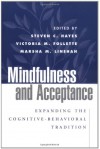Currently reading
Voices in Our Blood: America's Best on the Civil Rights Movement
Shelby Foote: A Writer's Life
Mindfulness and Acceptance: Expanding the Cognitive-Behavioral Tradition
Washington: A Life
Hero: The Life and Legend of Lawrence of Arabia
The 13th Sign
the man that saved the union ulysses grant in war and peace
 I don’t recall why I chose to read H.W. Brands’ The Man Who Saved the Union: Ulysses Grant in War and Peace, other than Grant was an American president I had yet to read about, but it totally changed my understanding of President Grant.Not to take anything from Mr. Brands, but my previous “understanding” of President Grant consisted of Mrs. Henderson’s 8th grade American Government & Social Studies, along with some brief paragraphs encountered only momentarily in various high school and college classes. An argument could very easily be made that with such a superficial knowledge of Grant, anything could change my “understanding”. True enough, but what impressed me the most was the way Brands was able to look past what was happening in Grant’s life, and the world around him, and focus on his heart. Prior to rejoining the army at the start of the Civil War, Grant had failed at every other endeavor he had tried. His drinking was a constant source of concern for Grant, and many of those around him, and though he tried mightily to remain sober, here too he failed. It would be nearly a century before Bill Wilson and Dr. Bob Smith would found Alcoholics Anonymous, and help the world understand that addiction is a disease and not a result of a weak, immoral character.Grant’s attitude towards the south and her freed slaves, as well as Native Americans, was far more compassionate than I had ever imagined. By today’s standards we would read Grant’s letters and his discussion of African Americans, and label him a racist. However, in his time Grant’s attitude was considered quite liberal, and though it was a very small step, Grant did help the nation inch just a little closer to being a land where all men are created equal was not just an ideal, but a reality.
I don’t recall why I chose to read H.W. Brands’ The Man Who Saved the Union: Ulysses Grant in War and Peace, other than Grant was an American president I had yet to read about, but it totally changed my understanding of President Grant.Not to take anything from Mr. Brands, but my previous “understanding” of President Grant consisted of Mrs. Henderson’s 8th grade American Government & Social Studies, along with some brief paragraphs encountered only momentarily in various high school and college classes. An argument could very easily be made that with such a superficial knowledge of Grant, anything could change my “understanding”. True enough, but what impressed me the most was the way Brands was able to look past what was happening in Grant’s life, and the world around him, and focus on his heart. Prior to rejoining the army at the start of the Civil War, Grant had failed at every other endeavor he had tried. His drinking was a constant source of concern for Grant, and many of those around him, and though he tried mightily to remain sober, here too he failed. It would be nearly a century before Bill Wilson and Dr. Bob Smith would found Alcoholics Anonymous, and help the world understand that addiction is a disease and not a result of a weak, immoral character.Grant’s attitude towards the south and her freed slaves, as well as Native Americans, was far more compassionate than I had ever imagined. By today’s standards we would read Grant’s letters and his discussion of African Americans, and label him a racist. However, in his time Grant’s attitude was considered quite liberal, and though it was a very small step, Grant did help the nation inch just a little closer to being a land where all men are created equal was not just an ideal, but a reality.








